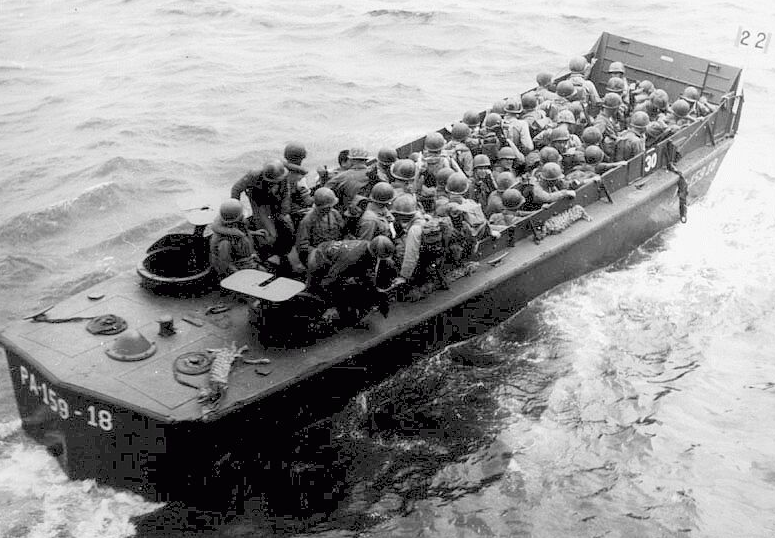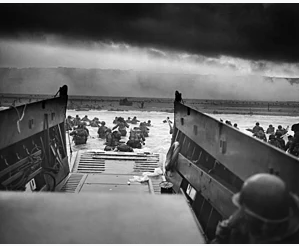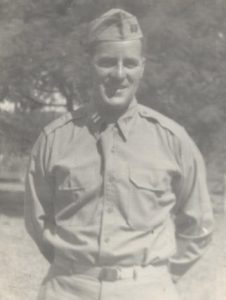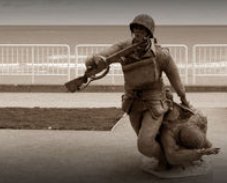
US Navy – Official US Navy photo taken from http://www.navsource.org/archives/10/03/100315901.jpg / uploaded from English Wikipedia USS Darke (APA-159)’s, LCVP 18, possibly with Army troops as reinforcements at Okinawa, circa 9 to 14 April 1945. US Navy photo.
By Kevin Judge | June 07, 2019
When you look at the top corporations, the ones that are not only succeeding but leading the way, you will find a defining characteristic that they share is a strong corporate culture. One that is directed from the top, but is embedded in the everyday work ethic of each and every employee.
For almost 20 years I worked for UPS, a company with one of the strongest corporate cultures you will ever find. The leadership of the company preached faith in individual human potential and a customer focused approach to business. Manager owned, it was an organization that did not spend an excess amount of time blaming people for failures. All of the great projects I worked on had low points where the project appeared doomed. Instead of scrapping the effort, we regrouped and moved relentlessly forward toward the fulfilling the objectives. That’s how we delivered the package tracking system that people know and love today!
We are fortunate that the military force that crossed the English Channel and liberated Europe beginning on June 6th, 1944 also had a strong culture, highly reflective of the societies that sent it. Like UPS, that culture derived from values of leaders that came of age early in the 20th century. Their values and culture were simple and uncomplicated by today’s worldview, yet successfully balanced conflicting requirements for respect for authority and individual initiative.

Chief Photographer’s Mate (CPHoM) Robert F. Sargent – This media is available in the holdings of the National Archives and Records Administration, cataloged under the National Archives Identifier (NAID) 195515.
When the front ramp of the Higgins boats dropped just off the beaches of Normandy, and the young soldiers waded toward the shore, they were quickly confronted with a grim reality. Key components of their battle plan had already failed. That plan had been developed over years, with an unprecedented amount of preparation. Yet D-Day turned out to be one of the great illustrations of the famous maxim that “No battleplan survives contact with enemy”.
The resistance at Omaha Beach was supposed to have been dramatically reduced by a massive Naval artillery barrage. Unfortunately, it was largely ineffective and overshot its targets.
Second, they were supposed to follow armored vehicles up the beach to make it easier to cross a mine and obstacle filled shooting gallery. Sadly, most of those vehicles were sitting on the bottom of the English Channel.
Last, but not least, the plan assumed that they would arrive in cohesive fighting units. Instead the early waves were decimated far beyond what was predicted, and what was predicted was bad enough. Some units had up to 90% casualties in the first wave. Succeeding waves landed scattered up and down the coast making coordination impossible and completely disrupting the chain of command, fundamental to effective battle operations.

Captain Charles M. Judge
My Dad, a WWII vet, believed that if German or Russian troops were faced with the same circumstances they would wait for a new plan and new orders from their leaders before attempting to advance. That is how you operate in both the military and civilian sectors of authoritarian societies that punish individualism and reward obedience over initiative. Germans were world class military planners, but the were poor at improvising.
This was not the American way in the 1940’s. In fact, Dad would say that it was when the plan failed that he really got going! Many historians would agree with him that a culture that encouraged initiative and personal responsibility was a key to success. Despite mass confusion and horrific conditions, one by one someone stepped up and took the initiative to organize their teams. Today, in sports, we call this the “next man up” mentality. Someone goes down, the next man sent in is expected to ready and fully prepared to perform.

Memorial to Allied Forces at Normandy France
Instead of a player going down with a bad knee or concussion, Captains and Lieutenants were being shot or blown up. With bullets flying everywhere, I would forgive someone for not rising to the occasion. If like me, you have never had to, it is hard to imagine how you could. Certainly not all did.
Yet, enough did to win the day. The Normandy Beach landing has been called “a Triumph of the Non-Commissioned Officers”. Many a man started that day as a Sergeant, Corporal or lower rank were leading squads or platoons before it was done. They could have hunkered down under withering fire and wait to die or be forced to surrender. Instead, they self-organized and their training in small unit tactics kicked in. At great loss of life, they advance up the beach to victory.
The takeaway is to train your people thoroughly and put your faith in them. Encourage initiative and be relentless. If this was how Europe was freed from the Nazi war machine, what chance would your competition have?
